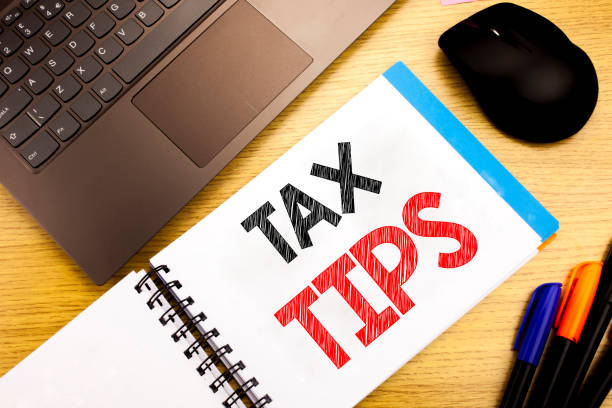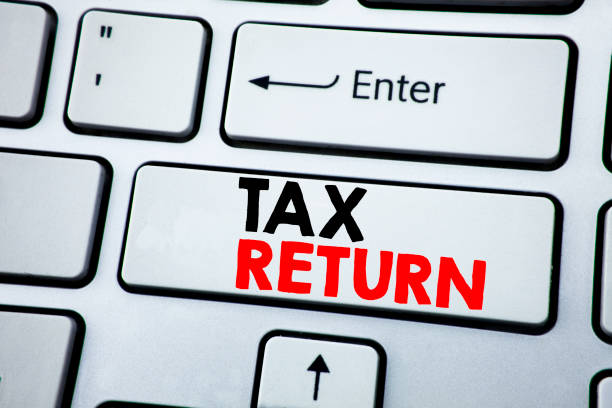While managing taxes can be a challenging and stressful task for many freelancers, sole traders, and contractors, navigating the world of self-employment offers many rewarding opportunities. It is essential to plan to minimize penalties and optimize your tax savings, as the self-employed tax return submission deadline for the 2024–2025 tax year is January 31, 2026. Supported by professional insights into UK tax laws and typical pitfalls to avoid, this comprehensive guide will give you helpful self-employed tax tips to save you money in 2025 if you want to keep more of your hard-earned money while staying in compliance. Why Filing Your Self-Employed Tax Returns On Time Matters The UK tax system requires all self-employed individuals to file an annual self-assessment tax return, which includes an account of their earnings and…
It can be pretty tricky to navigate your self-assessment tax return in the UK, but you don’t have to do it alone. Quick Tax Returns offers professional, amiable support whether you’re a self-employed person, a landlord, a director of a company, or someone who needs assistance with HMRC requirements. You can feel completely at ease knowing that the process is accurate, quick, and hassle-free thanks to our skilled self-assessment tax return accountants. What is a Self Assessment Tax Return? HMRC (Her Majesty’s Revenue & Customs) requires you to file a self-assessment tax return in order to report your income and pay any taxes that are due if they aren’t automatically withheld from your paycheck. This is especially important if you are: HMRC imposes strict deadlines: Your online self-assessment tax return…
5 Common Mistakes in Self‑Assessment Filing—and How to Avoid Them Navigating the UK Self Assessment process can be challenging, especially for landlords, independent contractors, and individuals with multiple sources of income. Unfortunately, making common filing errors for the Self Assessment can lead to severe penalties, HMRC investigations, or delays. Let’s examine the most common mistakes made by filers and, most importantly, how to prevent them if you want to keep your tax affairs organized for 2025. Missing the deadline is one of the most costly mistakes in self-assessment filing. Whether or not you owe taxes, you may be subject to automatic penalties for missing the self-assessment deadline. What are the deadlines? Penalties for missing deadlines: How to avoid it: Avoid last-minute filing by setting up automated reminders and recording deadlines…
Are you wondering about the cost of having tax returns prepared by an accountant? You’re not alone in 2025. When deciding whether to handle your tax return yourself or hire a professional, it is crucial to understand the tax return accountant fee. To help you make an informed decision and receive expert assistance without surprises, we at Quick Tax Returns assist in demystifying the associated expenses. This blog will discuss the typical cost of accountants for self-assessment, the factors that affect these costs, the advantages of working with a tax expert, and how to find clear and transparent pricing. We’ll also cover frequently asked questions concerning tax return fees, ranging from straightforward filings to intricate returns. The Average Cost of Filing a Tax Return in the UK in 2025 The…
Understanding who needs to complete a self-assessment is essential for your UK tax compliance. HMRC uses the Self Assessment system to collect income tax from people and companies whose earnings aren’t automatically taxed at the source. If you fit into any of a few particular categories, you have to file your return by the due date or risk penalties. Do I Need to File a Self-Assessment Tax Return? Do I have to file a self-assessment? You probably need to register and file if you have received income that isn’t taxed at the source, such as from investments, self-employment, rental property, or specific benefits. Among the primary requirements are: If you haven’t filed before and you fit into any of these categories, you have to register for Self Assessment with HMRC…
Navigating the UK tax system can be confusing, especially when terms like Self-Assessment and Tax Return are often used interchangeably. If you’ve ever asked yourself, “Are Self-Assessment and Tax Return the same?”—you’re not alone. In this blog post, we’ll break down the differences, similarities, and significance of both terms. Whether you’re a self-employed individual, a freelancer, or someone with multiple sources of income, understanding these terms is crucial for staying compliant with HMRC regulations. What Is a Self-Assessment? Self-Assessment is the system used by HM Revenue and Customs (HMRC) to collect Income Tax from individuals whose tax isn’t automatically deducted from their wages, pensions, or savings. It is your responsibility to report your income and calculate how much tax you owe. Key Facts About Self-Assessment: Filing through Self-Assessment means you…
Filing your taxes is not just about meeting deadlines—it’s about doing it right. In the UK, HMRC is strict when it comes to tax compliance. A simple mistake or missed deadline can result in hefty penalties that can strain your personal or business finances. That’s why it’s crucial to ensure complete accuracy when preparing and submitting your tax returns. At Quick Tax Returns, we make it our mission to help individuals and businesses avoid tax penalties through expert guidance, precise calculations, and a robust understanding of HMRC regulations. Whether you’re a sole trader, limited company director, or employed individual, avoiding penalties requires a proactive, professional approach—one we specialize in. Why Tax Penalties Happen: Common Causes Tax penalties in the UK can stem from a range of issues. Here are some…
Filing your Self Assessment Tax Return 2025 accurately and on time is more critical than ever. With increasing scrutiny from HMRC, updated digital tax regulations, and tighter penalties, UK taxpayers must be extra cautious this year. At Quick Tax Returns, we’ve seen how even the most financially savvy individuals can make costly errors when it comes to self-assessment. That’s why we’ve compiled this expert guide—rooted in years of hands-on experience—to help you avoid the most common mistakes and ensure a smooth tax season in 2025. Why Getting Your 2025 Tax Return Right Matters The 2025 tax year is especially significant due to ongoing rollouts from Making Tax Digital (MTD), evolving income reporting rules, and new compliance measures for cryptocurrency and international earnings. At Quick Tax Returns, our professionals help clients…
Self Assessment is a fundamental part of the UK tax system. Yet, many taxpayers remain unsure whether they need to file one, what income is included, and what the consequences of late submission are. Whether you’re newly self-employed, a freelancer, a landlord, or someone with untaxed income, understanding Self Assessment is crucial to staying compliant and avoiding penalties. In this guide, we’ll explain what a Self Assessment tax return is, who needs to file it, what income to report, important deadlines, and how to get help. What Is a Self Assessment Tax Return? A Self Assessment tax return is a method used by HM Revenue and Customs (HMRC) to collect Income Tax from individuals whose earnings are not automatically taxed through the PAYE (Pay As You Earn) system. Self Assessment…
If you’re wondering who needs to do a Self Assessment tax return in the UK, you’re not alone. Every year, millions of individuals—ranging from self-employed professionals to landlords and high earners—must report their income to HMRC through the Self Assessment system. But how do you know if you’re one of them? In this comprehensive guide, we’ll help you understand whether you need to file a Self Assessment tax return, the most common reasons individuals are required to do so, and what steps to take if you fall into any of these categories. Whether you’re new to the process or want to ensure full compliance with HMRC, this article covers it all. What Is a Self Assessment Tax Return? A Self Assessment tax return is a method used by HM Revenue…











